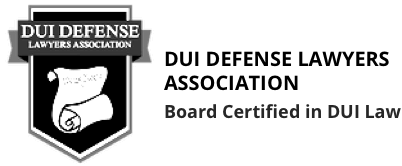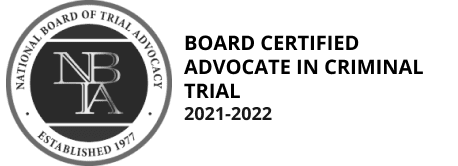Texas Expunction & Non-Disclosure Attorney
If you need to expunge a criminal charge in Texas, Thiessen Law Firm is here to help. Fill out the form below if you believe that you qualify for an expunction, and we’ll be in touch shortly about your eligibility.
Petitions/Orders for Non-Disclosure and Expunctions
Mark Thiessen, an experienced expungement lawyer in Houston, is here to explain everything you need to know about expungements and orders for non-disclosure in Texas.
Having an arrest or indictment on your criminal record can be disastrous for your personal and professional life. Did you know that after you have accepted deferred adjudication probations for an arrest, and have completed the probation in agreement with a dismissal, the offense still remains on your record for life?
Did you also know that even though your case got dismissed, the charge still shows up for the rest of your life? This is one of the most widespread misconceptions regarding dismissals.
Your arrest, court, and probation terms remain on your record and are available to the public unless you are granted a petition for non-disclosure, or an expunction, by the courts. These measures are the only way to legally remove your offense from your record. You may be entitled to have your Texas criminal record cleaned if you meet certain qualifications, and have a qualified expungement lawyer in Houston to represent you.
What is a Petition/Order for Non-Disclosure and Expunction?
In plain English, an order for non-disclosure is removing harmful information from the public eye. So, what does expunged mean? An expunction is erasing the information as if the incident never happened.
An order for non-disclosure is an order that prevents law enforcement agencies from making your records available to the public. It also allows you to legally deny the occurrence of the arrest and prosecution. The order for non-disclosure is intended to protect you from criminal background prejudice. You are vulnerable to criminal background prejudice with your present and future employers, lenders, educational institutions, leasing agents, landlords, adoption agencies, and neighbors, among others.
The difference between expunged vs. sealed records
Sealing the record from the public is not the same as expunging a record. Sealing only prevents release to the public, which means that this information will still be available to law enforcement and other state agencies, and may still be used against you should there be any subsequent criminal proceedings. Getting a DWI sealed in Texas does not protect you from subsequent charges or convictions if you do not fully expunge the charge from your record.
In order to have your record cleared completely, you must qualify for an expunction. In Texas, an expunction is the complete deletion of an entire criminal file. Once expunged, you can legally deny ever being arrested for an incident.
Am I eligible to seal my record through a petition for non-disclosure?
An order of non-disclosure is only available for defendants that have successfully completed the deferred adjudication probation agreement. You must not have been convicted or placed on deferred for any other offense; final convictions are not eligible. Only certain offenses are eligible for expunction, including a handful of offenses pertaining to alcohol. Other actions that will prohibit you from becoming eligible are:
- Being found guilty of a lesser included offense
- Placement on regular probation
- Paying a fine
- A time served jail sentence
Some crimes that are not eligible for an order of non-disclosure are:
- Capital murder
- Murder
- Sex offenses
- Injury to a child or elderly person
- Violation of a protective order
- Aggravated kidnapping
- Stalking
- Any offense involving family violence
For some misdemeanors, there is a two-year waiting period from the date you completed your probation, while for others there is no waiting period. For felonies, there is a five-year waiting period from the date that you completed the probation.
Am I eligible to expunge my record?
Not every type of probation is eligible for an expunction. Although deferred adjudication probation may be subject to non-disclosure, it can never be completely erased. Remember, though, the pre-trial diversion program (most commonly used in DWI, theft, and drug offenses) is not considered probation and may be eligible for expunction. Other eligibility requirements for the expunction of your criminal record are if:
- You were found “not guilty” at trial
- Criminal charges against you were dismissed
- You were convicted, but your conviction was later overturned on appeal
- Your case was dismissed or “no-billed” by the Grand Jury
- You were arrested for an offense, but the case was never filed
- You are a victim of identity theft, and the arrested person falsely gave your information
In order to expunge a misdemeanor in Texas — for example, a first DWI in Texas — your offense needs to have been dismissed with no court-ordered probation. You must have been acquitted by the trial court or pardoned and released without court-ordered probation, with no prior felony convictions in the five years preceding your date of arrest.
Felony expungement, including felony DWI expungement, requires that the charge be dismissed with no probation, and no felony conviction within 5 years of the offense subject to expunction. Certain felonies have exceptions, exclusions, and stipulations regarding eligibility that we would be happy to discuss in greater detail with you.
Disclaimer: An order for non-disclosure will prohibit public information brokers that sell your records for background checks from releasing that information once they have been notified of the existence of an order of non-disclosure. There are many websites that offer these services, and each one must be served individually to ensure compliance.
How long does expungement take in Texas?
The amount of time individuals must wait before petitioning for an expunction varies depending on the type of charge, whether the individual was convicted, acquitted, or the case was dismissed, the statutes of limitations, and several other factors.
However, we can provide you with a clear outline of a waiting period if you were arrested but never formally charged with a crime.
- Felony: 3 years from the date of the arrest
- Class A or B misdemeanor: 1 year from the date of the arrest
- Class C misdemeanor: 180 days from the date of the arrest
Do I need a lawyer to expunge my record in Texas? Yes. A good one.
The truth of the matter is, you need an experienced expungement lawyer in Houston, and you need one fast. If you are hoping to get your record sealed or expunged, you will need the best expungement attorney in Texas in your corner. Only the most aggressive Texas expungement attorney can help you to achieve the best possible outcome. You need Mark Thiessen, founding attorney of Thiessen Law Firm here in Texas.
Mark Thiessen, Criminal Trial Attorney at Law, is dedicated to seeking justice for every client. If you think you may or may not be eligible for non-disclosure or expunction, please contact Thiessen Law Firm for a free consultation so that we may help you look forward to the future, knowing that your past is behind you.
NOTE: This information is not legal advice. It is provided for educational use only. If you need legal advice regarding expunction or nondisclosures in Texas, contact the lawyer who can help. Call Mark Thiessen at 713-864-9000, or request a free case evaluation.














